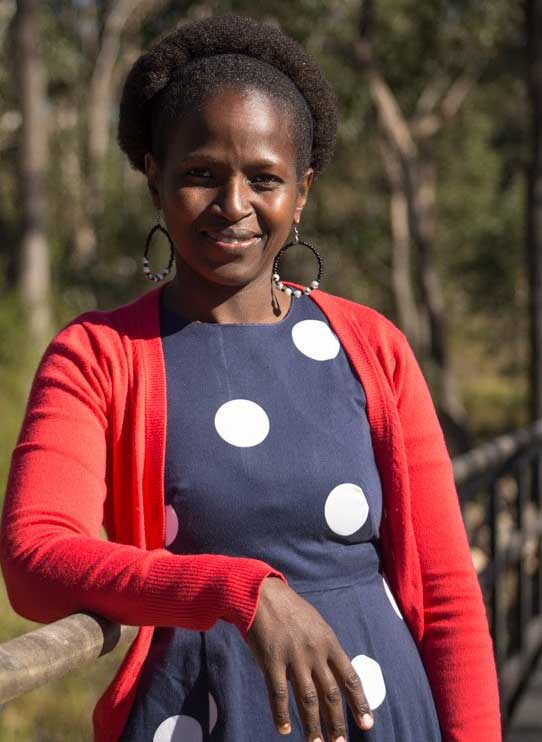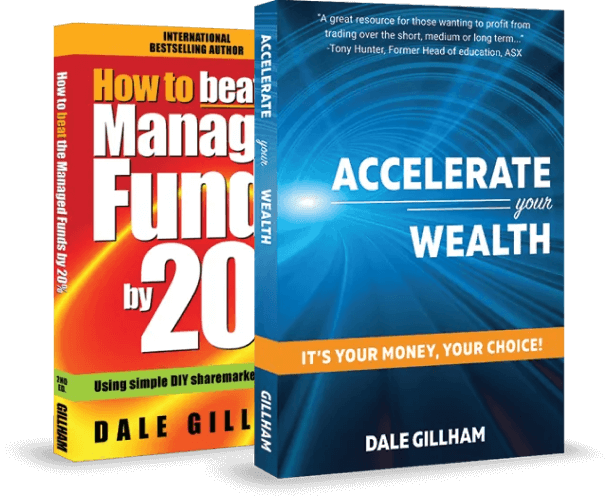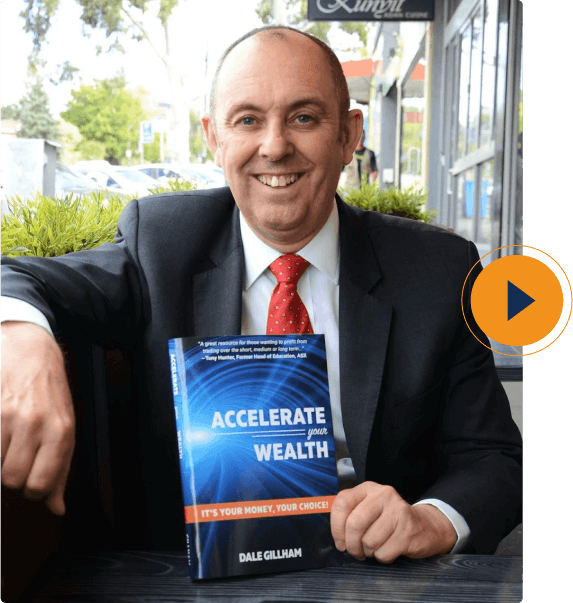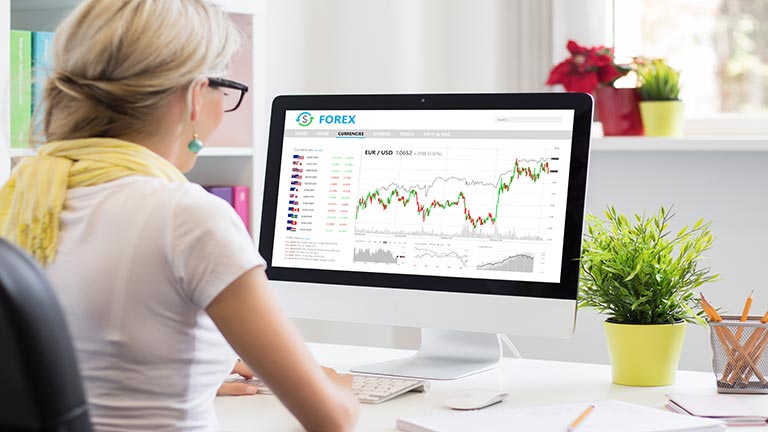Wealth Within Case Studies
Jane Kamiti Review
Jane Kamiti is a part time trader from Kenya and has been living in Australia for 14 years. She’s a happily married mother of three and is passionate about trading. Jane likes to support and educate the less fortunate, hoping it would break the cycle of poverty in her home country.

How and when did you first become interested in the markets?
While in Kenya, I found out that my step brother was doing well in the markets. He was a broker, and it was not until later that I realized he had no education in how to trade. Initially, I was in profit on a few of his stock picks, but they fell away, and I lost the money. In the end I realized that I was simply gambling. At the time I also had access to a Kenyan trading platform, which I found to be unreliable and unhelpful.
And then what happened?
In 2007 I had my second son and was at home with him being a mum. I began looking for something that I could do from home to make money to help support my family. This is when I started day trading, which at the time looked like a perfect option for me.
My husband and I would trade together, and we had what we thought at the time was a plan. Together, we would look at supply and demand and follow the ASX announcements. We also visited chat forums to see what others were doing and to help us make decisions. We would buy penny stocks rather than good quality companies, as we thought they were cheaper and would make us better profits. However, at the time we really did not understand the risks of doing this.
I had an experience when I bought a stock called ABC Centres and lost the lot. I bought many shares in this company, and then I was called by my family to go back to Kenya as my father was ill. At that time, I didn’t know about stop losses or how to exit trades, and this was during the GFC. While I was away, my husband called me in Kenya and told me everything on the market had gone down, including the stocks we owned and so you can guess how this made me feel.
Today, I still hold a couple of those penny stocks to remind me of what happens when I trade without knowledge. We lost $20,000, which was a lot of money for us back then, as we were still students trying to build a life in a new country.
How have you been able to learn and educate yourself about the markets?
I opened an account with the broker Commsec and did some training with another company who I recall may also have been a broker and I attended a two-hour session with them.
At the time I thought this was enough education and I was ready to trade again. I was so excited about the information I had been given at the two-hour session, but having now completed a proper training course I realize that this seminar was not even scratching the surface of what I needed to know.
I wanted to learn to trade because I realized that I was making a lot of mistakes and it was costing me dearly. The big realization was that while I thought I had the knowledge, I was really trading without any proper knowledge, as I relied on tips from people, chat forums and the like.
Speaking from experience, if you want to trade you really need to do your own research and be educated in how to go about trading properly. I say this as initially I didn’t really understand that we all have different styles and risk appetites, and this meant I was not trading in a way that was best for me. I found that what I needed to do was to learn to trade properly so I could really work out what styles and methods of trading best suited me.
The main goal was to be profitable and to gain financial stability for my family, as it is important to my husband and I, so that as a family we can lead the lifestyle we want. I want to spend more time with my family and friends and to be able to give back time and financial support to society. This is why I decided to get a proper education, so we can achieve our goals.
I completed Wealth Within’s Diploma of Share Trading and Investment, which changed everything.
Did you make mistakes when first starting out?
Yes, the big ones were buying penny dreadful stocks, taking tips from people and chat forums, not having a proper plan which is a major mistake, and not having goals.
Would you define yourself as a discretionary trader, a mechanical trader or a combination of both?
Both, however, I do ensure that I back test every stock for mechanical rules, including Dow Theory and trend lines, and when the results show they work well on the stock, I use these mechanical rules exactly as taught.
If I see a stock that could work better by slightly changing and adding my own style, based on my experience with those rules, I will use my discretion as to whether to enter or exit a trade. Sometimes I find stocks that don’t follow black and white rules, so if I notice that something else works better, I know I can now confidently use the knowledge and skills I have built up to date to test variations to the standard rules.
Who have been some of your mentors and role models? What impact have these people made on you personally as well as on your trading style?
Janine Cox and Dale Gillham at Wealth Within, especially Janine. She pushed me so much to get my whole plan for trading and what I want documented. When I started trying to document what I really wanted I was all over the shop and I nearly gave up, but she pushed me and now when I read my plan, I know it’s mine. I know now that I was not committed to documenting it and was just doing it for the sake of getting it done, but once pushed to redo it properly, I found it was actually easy to follow and my results were far better.
When you have a plan, it makes your life very easy. The plan included setting up my goals and plans to be able to manage myself and things I have to do at home without getting stressed.
The biggest impact to my trading style has come from having a plan and following it through. Once I wrote it and felt that it was from me and that I owned it, I was able to follow it through and this made all the difference. This has had a big impact on what I do and my psychology. Also, I don’t worry about what the market will do because as long as I have a plan in place, I know I can just follow it.
Can you give us a brief overview of your trading style?
I used to be a short-term trader and now I trade over the medium to longer term. I consider the trades to be medium risk.
Is there any one trade (win or loss) that had a profound effect on your development as a trader? If so, what did you learn from the trade?
I had a Kenyan bank that made over 100% but I didn’t sell it. There was a huge announcement that made it jump and after that I did have lots of opportunities to sell before it fell into a loss. This happened because I had no plan in place. The experience showed me that I could make money from the market if I knew what to do and more importantly, how to sell.
Can you tell us about your best and worst trades?
I fell in love with that bank stock and I kept trading it. I did make small amounts of money but later learned through my training not to fall in love with a stock. ABC Centres was the worst trade. I bought it on news and tips from people.
I believe ABC went into receivership and I lost everything. I learnt not to take tips and to do my research. This highlighted to me that I had no risk management skills.
Would you classify yourself as a short-term or a long-term trader? What advice would you offer to people getting started as traders on the relative merits or otherwise of each?
I am currently a medium to long term trader. When I do the CFD course with Wealth Within I will get into short-term trading. That is my next step.
For people starting out, I would say start with a medium to longer term approach to gain experience, as short-term trading takes a longer time to manage. Once you get experience in the market with medium to long term trading then you can go to short-term trading if you want to.
What markets do you trade, and which markets do you prefer? Do you have a favourite, and why?
I trade shares on the Australian market. I know a lot of the companies and choose the ones I like. I chose to trade shares as they are less volatile than fast moving leveraged markets.
What makes your trading style different from others? What sets you apart from other traders?
I would say that most people don’t have a plan because they don’t have the knowledge. If you don’t have the knowledge and are without a proper plan you rely more on news and tips from other people, which means you are more likely to lose.
For me, having a trading plan and sticking to that plan is very valuable as I can buy a stock and the news reports can state whatever reporters or commentators want you to know and that doesn’t affect me anymore because I can follow my plan.
Do you have a favourite trading rule?
I use Dow Theory a lot as it is easy to understand and gives me more opportunities to get into a stock. This is the first thing I test when I back test rules on any stock I am interested in trading.
Ed Seykota says, “Everybody gets what they want from the markets.” What do you ‘get’ from the markets?
I’d like to say lots of money, but I have taken some time off from the market due to personal commitments. I am currently doing a course.
I have learned that as a trader I need to be committed 100% to be successful and I plan to commit myself to trading again in November. But I think the real thing is that I am now really confident and know that I can trade at any time and be profitable.
How has trading affected your lifestyle?
To be honest, because I did the course, I am able to support others learning to trade. Most importantly, it has given me more time with my family. I was working more hours and sometimes Friday nights in another job. I have been able to drop that which means more time with kids and my husband on Friday and Saturday. My children were so excited when I told them I had changed my working situation and would not be working Friday evenings and Saturdays. They play basketball on Saturdays and can now have play dates with their friends.
What books, seminars and courses have you read or attended, and which would you recommend?
I have completed the Diploma of Share Trading and Investment and the Advanced Trading Strategies Course with Wealth Within. I also attended Wealth Within’s Art of Trading workshops.
I would recommend the courses 100% because of the knowledge they gave me, which is very crucial in trading. I will also be doing Wealth Within’s Forex and CFD Trading Course soon, which I would also recommend for people wanting to do short-term trading. I would not recommend doing two-hour seminars as this will not prepare you to trade.
I would recommend to those starting out to read Dale’s book Accelerate Your Wealth. I didn’t read any other books related to trading, but I have read books about wealth management, cash flow and motivational books which can help traders with psychology.
What helped me the most was the Diploma of Share Trading and Investment because it helped me understand share trading properly and allowed me to see my past mistakes so that I don’t repeat them. This also gave me the opportunity to connect with people that are already trading, and they have helped me to further develop my own share trading skills.
What does the future hold for you?
I’m so excited I can’t wait to start trading again. I want to set up a Self-Managed Superannuation Fund (SMSF) and trade the money we have in super. I will be a full- time trader soon.
I see trading improving our nest egg for retirement so much as most super funds employ buy and hold strategies through market ups and downs.
My plan is to open a joint account with my husband. The account will allow us to be financially independent by supporting our lifestyle when we retire. We will have control of our money and manage the investments ourselves. My husband is excited about me getting my trading going again and he has always been very supportive. He wants me to get our SMSF up and running as soon as possible.
I will also continue to support others to get what they want from the markets. I am always learning something about myself and trading while supporting others to learn to trade, which helps me a lot.
A big goal for me is to set up a not for profit organisation/fund to support less fortunate people in Kenya, as so many people there earn under one dollar a day and cannot send their kids to school. One of the things we currently do is support a child through Compassion Australia by donating $50 a month.
Insights From Our Learning Centre

Learn the concepts as to how you can accelerate your wealth using simple DIY investment strategies that will enable you to take control of your investments. Dale Gillham, bestselling author, shows you how to invest with confidence to achieve very profitable returns.
Browse BooksOr Browse By Topic
5 Stars
Years in business delivering high-quality education
of students rate the quality of education as excellent
of students recommend Wealth Within to others




